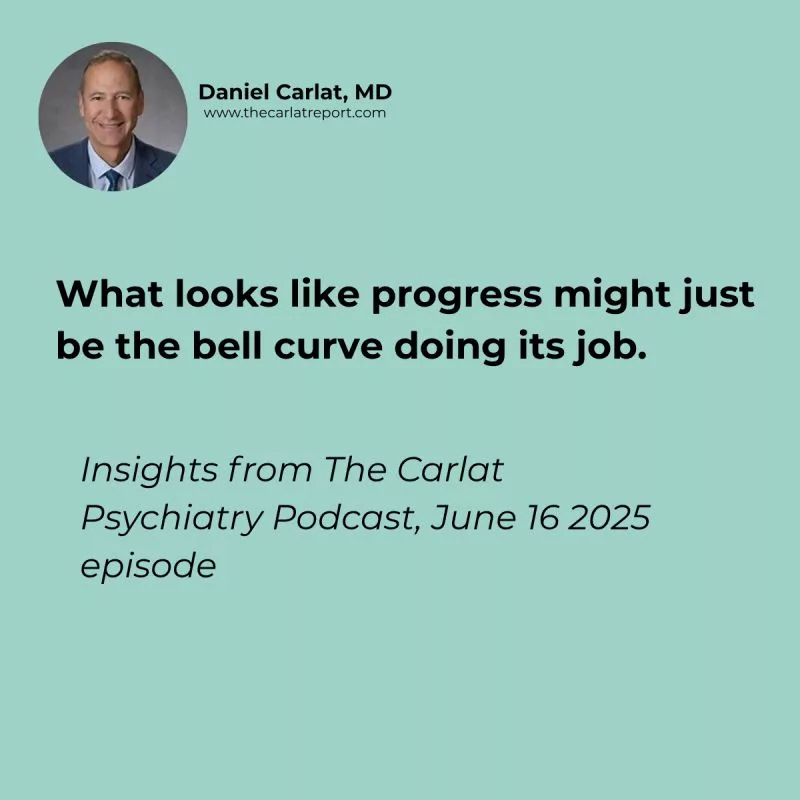You start a medication. The patient feels better in two weeks. You think: “Finally. This one works.”
But six weeks later, the magic’s gone.
What happened?
On the Carlat Psychiatry Podcast, hosts Chris Aiken, MD, and Kellie Newsome, PMH-NP, unpack a clinical trap that’s easy to fall into and rarely named: regression to the mean.
Regression to the Mean: The Misleading Glow of Early Response
Patients don’t show up randomly. They come in at their worst. And from there, most can only go one direction—up. Sometimes, even without the right medication. Sometimes, with nothing but a compassionate ear and 10 mg of hope.
Layer in the placebo effect, which is especially strong in conditions like major depression and generalized anxiety disorder, and it’s no wonder early improvement is often mistaken for true pharmacologic success.
Why the First Visit Glow Can Be DeceivingWe tend to reward early improvement—building on it, escalating treatment, and sometimes switching prematurely when the glow fades. But often, that “response” wasn’t a response at all. It was the bell curve doing its job.
The risk? Polypharmacy. Meds that never had a real signal stick around. Others get piled on. And the diagnostic picture gets cloudy.
Carlat’s Insight: Pause Before You EscalateInstead of jumping to conclusions, ask:
-
What’s real?
-
What’s random?
That reflection could save your patient from unnecessary medications—and you from chasing false leads.
Listen to the Episode
Catch the full discussion on the Carlat Psychiatry Podcast, originally aired June 16, 2025:
Psychopharm Secrets: Starting Meds


_-The-Breakthrough-Antipsychotic-That-Could-Change-Everything.webp?t=1729528747)



